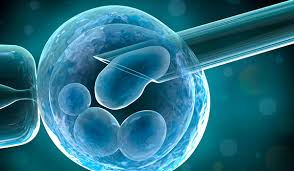If you undergo fertility treatment and have heard of pre-implantation screening (PGS), you’ll wonder what it’s and if it’s something that would be beneficial for you. If you’re doing In Vitro Fertilization (IVF) that doesn’t include the Preimplantation Genetic Test, the embryos are chosen primarily for his or her visual quality (morphology). This doesn’t distinguish chromosomally normal embryos from chromosomally abnormal embryos. IVF cycles that do include pre-implantation genetic detection help select chromosomally normal embryos for future transfers. PGS improves transfer success rates and helps patients achieve successful pregnancies and a healthy baby. Therefore, talking together with your doctor about PGS could also be something you would like to think about.
How screening works before implantation
With screening before implantation, a biopsy is typically taken at the blastocyst stage, which is typically achieved on day five or day six of embryo development. Embryologists perform embryo biopsies by removing 4-6 cells from the blastocyst of 100-200 cells. The biopsy is then sent to a laboratory for analysis of screening before implantation. generally, embryos freeze and remain within the fertility clinic while biopsies are analyzed within the laboratory.
Genetic screening before implantation examines each embryo biopsy and quantifies the number of chromosomes in each sample. a traditional embryo must contain 46 chromosomes or 23 pairs of chromosomes in total, with one set contributed by the sperm source and therefore the other set contributed by the ovule source.
If there’s any deviation from the 46 typical chromosomes, the embryo is diagnosed as abnormal or aneuploid. If the embryo is taken into account aneuploid, meaning there are one or more missing or extra chromosomes. If an embryo features a missing or extra chromosome, it’s likely to end in a failed implantation, a miscarriage or a pregnancy affected with a chromosomal syndrome.
Once all embryos are analyzed, a genetic report is shipped to your reproductive endocrinologist. Your doctor will use the leads to combination with the classification/morphology of the embryos to form a recommendation on which embryo to transfer.
Recently, the American Society of Reproductive Medicine, the ECU Society of Reproduction and Human Embryology and therefore the International Committee for Assisted Reproductive Technologies Monitoring decided to start out using the term Preimplantation Genetic Testing for Aneuploidies (PGT-A) rather than Genetic Detection of Preimplantation (PGS). These terms are often used interchangeably.

Who should consider screening before implantation?
Pre-implantation genetic detection increases the success rates of frozen embryo transfers. Although PGS requires a further step within the IVF process, this test can significantly reduce the danger of miscarriage and failed transfers.
It is also important to know that as women age, the likelihood of chromosomal abnormalities increases. If you’re over 35 years old, you’ll want to talk together with your fertility specialist on the genetic test before implantation. However, even in young women, there’s still a reasonably high risk of chromosomal errors in embryos. PGS is suggested for ladies of any age who have experienced a recurrent miscarriage, whether conceived naturally or through fertility treatment.
Benefits of screening before implantation together with your IVF treatment Chromosomal abnormalities are often liable for approximately 70 percent of spontaneous abortions at the start of pregnancy. Therefore, pre-implantation genetic testing can increase the probabilities of a successful pregnancy.
In addition to a number of the advantages we’ve highlighted above, other benefits are:
- The possibility of a healthy pregnancy increases altogether age groups.
- Higher transfer pregnancy rates
- Less IVF treatment cycles are needed (less time and money)
- It allows the transfer of one embryo by identifying the embryo that has the simplest chance of implanting and carrying a healthy child. Single embryo transfer (SET) can help reduce the likelihood of health complications that are often related to twin and/or triplet pregnancies. Multiple pregnancies also can cause an increased risk of co


Add Your Comment